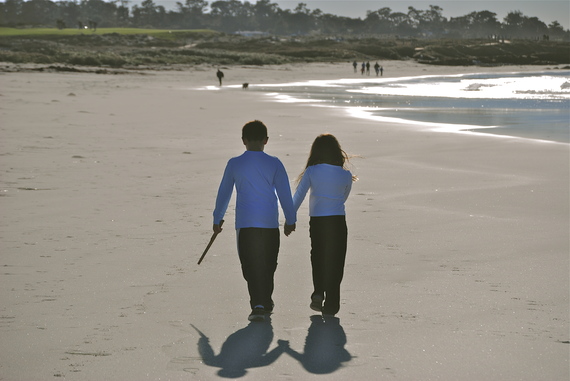The most frequently mentioned and crippling spiritual problem for the people I know concerns how to forgive. When you think about it many of the problems we face at a basic level have to do with forgiveness.
Some kind of forgiving is involved in overcoming childhood neglect or abuse, substance addiction, extramarital affairs, work tensions, lost friendships, crippling illness or family conflict. We all constantly face challenges to our powers of forgiveness.
Forgiveness is not simply accepting another person's bad behavior, or denying that something has hurt us when it has. Forgiveness does not mean sweeping everything under the rug or merely forgetting what hurt us. We should remember those bad things so that they won't happen again and as a way of celebrating the way that forgiveness has allowed us to move forward. Finally, forgiveness doesn't require the other person to say she's sorry, or that you will be reconciled to the person who wounded you.
Instead forgiveness is a way of leaving the past in the past. Hurt and anger are appropriate but only as fleeting emotions. We don't have to bring what wounded us into the future. Forgiveness is a choice we make, a way of healing our spirit so that we don't have to suffer indefinitely. Forgiveness is not magical. It is a skill that you can learn, a way of taking responsibility for your feelings. Social scientists point out that religious people live longer in part because forgiveness decreases the anger and hopelessness which wound us.
When you tell the same story more than twice to the same person, or more than two days in your mind, or if it continues to upset you in a way that you feel it physically, or if you see another person as the villain, or you haven't checked the story for accuracy, you should take these as signs that you need to start the hard work of forgiveness. This is especially true if we are talking about something that happened a long time ago.
Fred Luskin directs the Stanford Forgiveness Project. In his book Forgive for Good he writes about three practical things we can do to forgive. But first he points out that we have work to do before we even begin forgiving. This involves understanding why we feel hurt and clarifying our story with two or three people whom we trust.
The remarkable thing to me is that this is enough. After this, it is time to leave that incident behind and begin to forgive. The first strategy Luskin mentions is to change our expectations of others and ourselves. This involves learning that there is a personal and impersonal aspect to every social interaction. We need to not take so much personally.
The second thing he observes is that although blaming other people may feel good in the short term, we need to take responsibility for our own feelings. Otherwise the reason for our problem lies outside the self and is inevitable. Ultimately we are the ones who decide how we respond to what happens to us.
Luskin's final suggestion is to craft a story for our life in which we see ourselves as heroes who overcome adversity rather than as victims who have been wronged.
People of faith constantly struggle with an effort to replace the stories that the world tells us about ourselves with God's story. God's story, which we inherit from the most ancient times, makes it hard for us to go on seeing ourselves as victims. Every person is a child of God blessed with gifts of beauty and power that help us to prevail.
Ultimately we will be free from stories like "I don't get what I deserve," or "people will only love me if I succeed," or, "only the strong survive." The power that we find in being children of God means that we go out in the world not just offering forgiveness, but actively seeking reconciliation.
